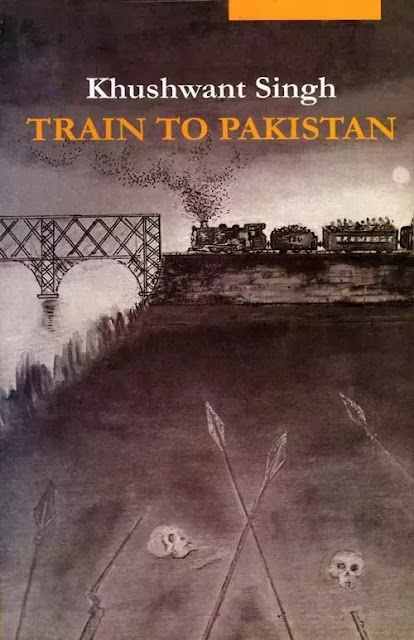Train To Pakistan - Khushwant Singh(Summary, About, Review and More...)
About:
This Book is a historical novel written by Khuswant Singh, published in 1956. It recounts the Partition of India in August 1947 through the perspective of Mano Majra, a fictional border village.
In a relatively short book, the reader gets to know a lot of characters in detail. Examination of the varied groups of people not only increases cultural and social understanding of the time and place but also shows that the blame could not be placed on any one group; all were responsible.
Like:
Muslim said the Hindu had planned and started killing. According to the Hindus, the Muslims were to blame. The fact is, both sides killed. Both shot and stabbed and speared and clubbed. Both tortured. Both raped
Summary:
Train to Pakistan is set during 1947 partition of India that created the nations of Pakistan and India, it focuses on the way partition impacted the lives of ordinary citizens as they were torn from their homes, Train to Pakistan brings a human dimension to one of the bloodiest periods in the history of the two countries.
Before the 1947 partition, Hindu, Muslims, and Sikhs lived side by side, despite occasional conflicts and violence.
Partition set such religious and cultural differences in stone and families were forced to abandon their homes, moving to areas that were deemed safe for those of their religious beliefs. However, the resettlement process itself was filled with danger as extremist elements sought to take advantage of the chaos. These ad hoc evacuations took place on foot, via cart, and on crowded trains. As the refugees attempted to escape the violence, they would soon become caught up in the ongoing Hindu and Muslims.
Although many refugees sought safety in the countryside, far away from the center of the violence, rural areas were filled with danger as well, as tribal gangs targeted refugees. In all, it is estimated that almost ten million people were relocated during the conflict. Of those, more than a million were killed in the violence that erupted during the resettlement process. Through this all, the train continued to run, shuttling refugees along a dangerous path. The trains became targets themselves, as both sides in the civil war saw them as an effective way of killing large numbers of refugees. They became known as ghost trains or funeral trains.
Many such villages, such as Mano Majra where the majority of the novel takes place, relied on supply trains, and trains' arrivals and departures structured daily life in the villages. As the war progressed, the trains become more and more irregular and were often filled with more refugees than the small villages could handle. As the chaos in the center of the country increasingly reached the ruler villages, fear crept into the villages and touched every aspect of their lives.
Soon, the fragile peace among religions in the village(Mano Majra) is broken as the Muslim citizens in the village are ordered to evacuate. Stripped of their belongings, families that have lived in Mano Majra for generations are exiled with only the possessions they can carry. Although the Muslims suffer the brunt of the soldiers' authority, the soldiers have plans for the Sikh and Hindu populations as well. An attack is planned on the next train to Pakistan, and the Hindu and Sikh citizens are drafted into it. The soldiers will strafe the train with gunfire and when people flee the train the villagers will attack them and finish them off.
The horror of this plan is emphasized when the villagers realize that this next train will not be carrying Muslim citizens, but the people from their village. They are being ordered to attack their own friends and neighbors. One man, a Sikh thief named Jugga, is horrified to realize that his bride to be, a Muslim woman, will be on the train as well. In the face of this violent attack, the citizens of Mano Majra are forced to confront the beginnings of ethnic cleansing in their nation. Jugga, a man who has been complicit in violence in the past, is forced to decide if this is the time to take a stand, or if violence is now inevitable. The crisis of faith he experiences as he struggles to rise above the current climate of hatred and stand up for the friends and neighbors in the crux of Train to Pakistan.
Reviews:
Train to Pakistan remains one of the seminal works dealing with the partition of India and explores themes of love, religion, and alliances. Singh paints a picture of a village where no one is either pure evil or pure good. Jugga - a deeply flawed man - represents the idea that during periods of religious and political conflicts, people can choose to walk a different path, even if the cost is high.





Comments
Post a Comment